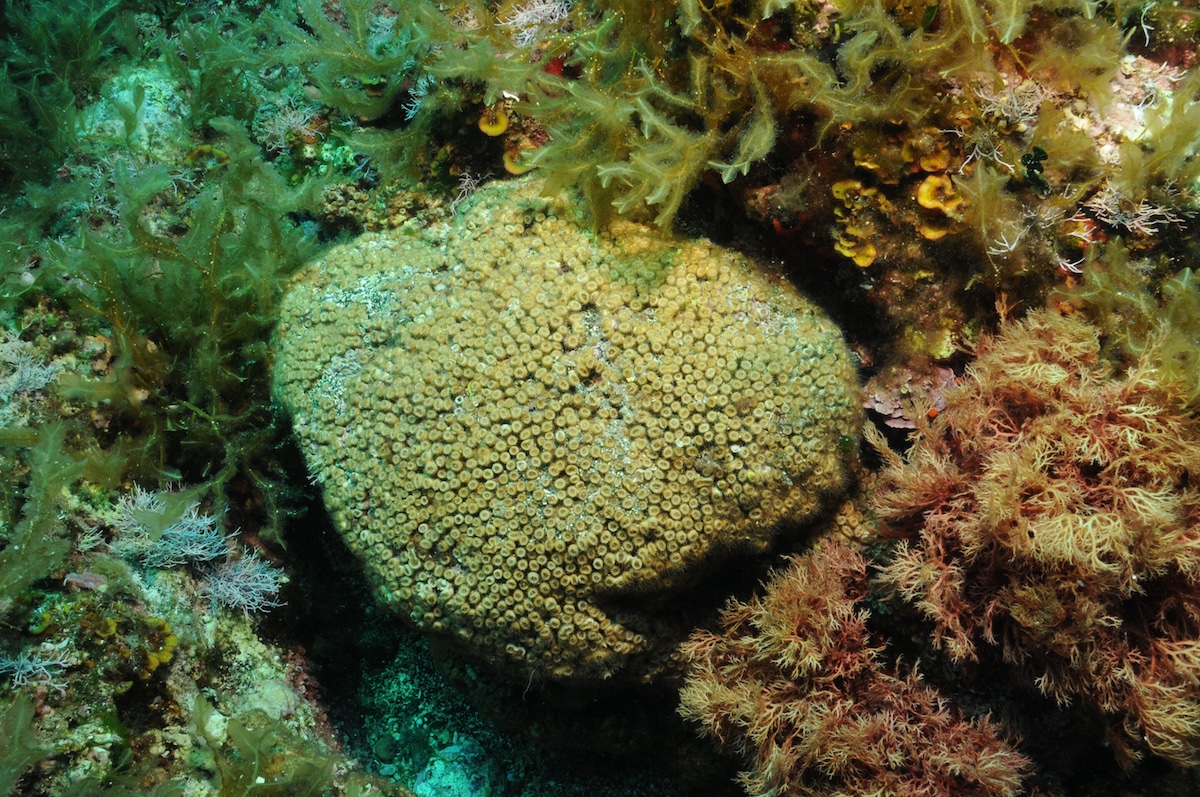Scientists Find Pollutants in Corals Linked to Burning Fossil Fuels

 Why you can trust us
Why you can trust us
Founded in 2005 as an Ohio-based environmental newspaper, EcoWatch is a digital platform dedicated to publishing quality, science-based content on environmental issues, causes, and solutions.
While scientists have known that pollutants from human activities like agriculture, plastic production and coastal development threaten corals, a new study is the first to find pollutants tied to burning fossil fuels embedded in corals.
Researchers from the Instituto de Acuicultura de Torre de la Sal collected samples from the coral species Cladocora caespitosa of the Mediterranean Sea, in the Illa Grossa Bay near Columbretes Islands off the eastern coast of Spain.
They analyzed the samples in a lab at University College London by dissolving the coral in acid to reveal any pollutants in the coral skeletons. Using a microscope, an electron microscope and x-rays, they discovered fly-ash particles, or spheroidal carbonaceous particles (SCPs), embedded in the skeletons.
The pollutants are linked to burning fossil fuels, revealing humanity’s impact on ecosystems. The scientists published their findings in the journal Science of The Total Environment.
“The discovery of these pollutants embedded in coral skeletons extend[s] over decades and paint[s] a clear picture of how extensive human influence is on the environment,” Lucy Roberts, lead author of the study and lecturer in environmental change at University College London, said in a statement. “It’s the first time we’ve been able to see this kind of contaminant in corals, and its appearance in these deposits parallel[s] the historic rate of fossil fuel combustion in the region.”
According to the study authors, this is the first time scientists have found pollutants, aside from microplastics, embedded in coral skeletons in nature.
Scientists often use coral for paleoclimate studies, as the corals can preserve environmental data by week, month or year for decades. The study findings that revealed increasing amounts of fly-ash particles embedded in coral skeletons, observed from years 1969 and 1992, align with industrial development in Europe.
The study findings could help scientists pinpoint the start of the Anthropocene epoch, a geological unit of time when human activities have the greatest influence over Earth’s surface, oceans and atmosphere, as defined by Britannica.
“As it becomes clearer that humans have altered the natural environment to an unprecedented level, these pollutants act as indelible markers, indicating the start of the Anthropocene epoch,” Roberts said. “This is valuable to researchers trying to better understand the history of human impact on the natural world and serves as a powerful reminder of how extensive human influence is over the environment.”
The latest discovery also adds to the mounting threats to coral reefs, including pollution from agricultural and sewage treatment runoff, rising ocean temperatures, coastline development, dredging, deep-sea trawling and overfishing, National Oceanic and Atmospheric Administration (NOAA) reported. Recently, NOAA added additional warnings to its Coral Reef Watch to account for heightened bleaching risks. Further, scientists have predicted 2024 to be a year of major bleaching events because of record warming.
Subscribe to get exclusive updates in our daily newsletter!
By signing up, you agree to the Terms of Use and Privacy Policy & to receive electronic communications from EcoWatch Media Group, which may include marketing promotions, advertisements and sponsored content.

 233k
233k  41k
41k  Subscribe
Subscribe 




